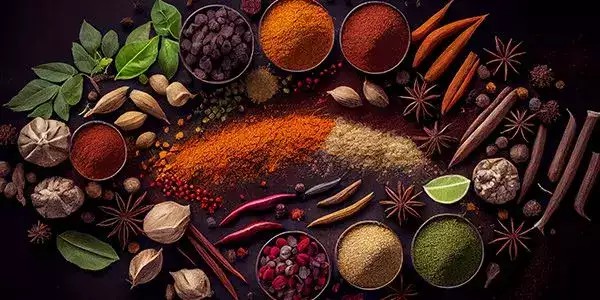According to media sources, the European Food Safety Authority has found chemicals linked to cancer in 527 food products that came from India & 54 were labeled ‘organic’. This is a worrying finding.
Out of these, 54 had the designation “organic.”
This is the complete list of items:
•Sesame seeds and nuts
•Spices and Herbs
•foods on a diet
• more food items
When it comes to nuts and sesame seeds containing ethylene oxide, 313 cases were reported, whereas 60 cases involved herbs and spices. Data from the Rapid Alert System for Food and Feed (RASFF) indicates that between September 2020 and April 2024, there were 48 such cases involving dietic foods and 34 with other food products.
The safety of Indian food products is called into doubt by this result, which covers the period from September 2020 to April 2024.
332 of the impacted goods are made in the country, raising questions about regional food safety regulations.
The substance under investigation, ethylene oxide, which was previously identified in spices marketed under the Everest and MDH brands, was primarily found in 313 dry fruits and seeds. The detection of ethylene oxide in dry fruits and seeds from various brands raises concerns about the safety of these food items. Authorities need to investigate further to ensure consumer safety and address any potential risks associated with these products.
It was also detected in 34 other food goods, 48 diet-related items, and 60 herbs and spices items.
The widespread presence of ethylene oxide in a variety of food products, including herbs, spices, diet-related items, and others, underscores the importance of thorough regulatory oversight and food safety measures. Consumers rely on authorities to address such findings and ensure the safety of the food supply chain.
The report also stated that 87 shipments were turned away at the border because they contained ethylene oxide.
The study also stated that even though some products had already hit the market, quick action was taken to keep them out of circulation.
Because of the health dangers, ethylene oxide, which is mostly employed as a sterilizing agent and pesticide in agriculture, is not allowed to be used in food applications.
The European Union placed a ban on the use of ethylene oxide in 1991, but as imports have increased, officials are being more watchful. According to official reports, the European Union has declared that ethylene oxide is a carcinogen that causes genotoxicity “where no safe level can be established” when it comes to products, particularly food items.
Extended exposure to ethylene oxide has been linked to a higher risk of several illnesses, including stomach and breast cancer, as well as stomach infections.
According to the American National Cancer Institute, it also presents risks to DNA, the brain, and the neurological system, which may result in lymphoma and leukemia.

